
Noopur Raje, MD, discusses the current treatment landscape of multiple myeloma, with a specific focus on available triplet regimens and the recent data with chimeric antigen receptor T-cell therapy.

Noopur Raje, MD, discusses the current treatment landscape of multiple myeloma, with a specific focus on available triplet regimens and the recent data with chimeric antigen receptor T-cell therapy.
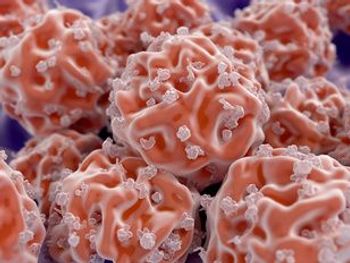
Two abstracts presented at the Transplantation and Cellular Therapy Meetings analyzed the detection of minimal residual disease during and after hematopoietic stem cell transplantation.

Real-world data on the use of chimeric antigen receptor T-cell therapy in large B-cell lymphoma bear out the pivotal results from ZUMA-1 and demonstrate not only that the treatment approach is here, but also that it’s time to address issues of efficacy, safety, cost, and moving this approach into earlier lines of therapy.

B-cell maturation antigen-specific chimeric antigen receptor T-cell therapy is delivering impressive results in multiple myeloma, demonstrating durable responses and acceptable toxicities.

This week, the top managed care news included CMS' proposal to cover chimeric antigen receptor T-cell therapy; a study faulting the FDA’s handling of fentanyl oversight; and breast surgeons calling for genetic testing for all patients with breast cancer.

Deepu Madduri, MD, discusses the status of transplant for eligible patients and the developments that are being made with CAR T-cell therapy in multiple myeloma.
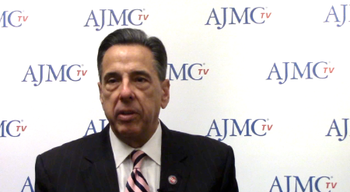
As new, innovative therapies with high price tags, such as chimeric antigen receptor (CAR) T-cell therapy, come to market, the US health system will have to start looking at different approaches for reimbursement, said Ted Okon, MBA, executive director of the Community Oncology Alliance.

C. Ola Landgren, MD, PhD, discusses the role of minimal residual disease negativity and the emergence of CAR T-cell therapy in multiple myeloma.
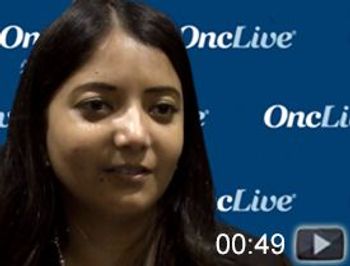
Deepu Madduri, MD, assistant professor, Mount Sinai Hospital, discusses treatment after CAR T-cell therapy in patients with myeloma.
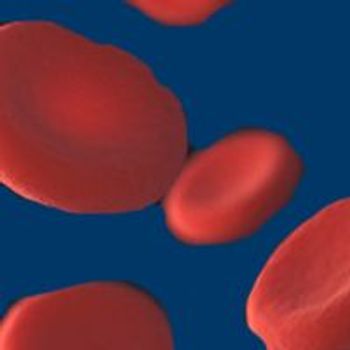
A multitude of BCMA-targeted CAR T-cell therapies are currently in development, each demonstrating different efficacy and safety profiles and each with different constructs.

While new therapies like chimeric antigen receptor (CAR) T-cell therapy, can have amazing results, the innovation of these treatments has outstripped the United States’ ability to pay for them, said Michael Kolodziej, MD, vice president and chief innovation officer at ADVI Health, Inc.

The anti-BCMA CAR T cell therapy bb21217 demonstrated an objective response rate of 83.3%, with a very good partial response or better rate of 75% in patients with heavily pretreated relapsed/refractory multiple myeloma.

Two-year maintenance therapy with ixazomib led to a 39% improvement in progression-free survival compared with placebo in patients with newly diagnosed multiple myeloma who achieved a partial response to induction treatment with a proteasome inhibitor and/or an immunomodulatory agent following autologous stem cell transplant.

Treatment with the CD19-targeted CAR T-cell therapy tisagenlecleucel demonstrated sustained rates of relapse-free survival and overall survival at 24 and 18 months for pediatric and young adult patients with relapsed or refractory acute lymphoblastic leukemia.

After being treated for his chronic lymphocytic leukemia with chimeric antigen receptor (CAR) T-cell therapy, Brian Koffman, MDCM, DCFP, DABFM, MS Ed, medical director, CLL Society, is being followed for 15 years to better understand if there are any undiscovered adverse events that pop up and how durable the response is.
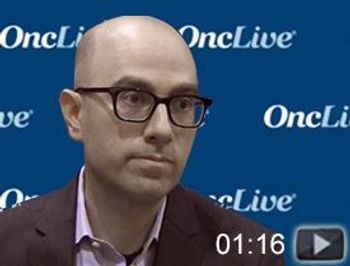
Eric Smith, MD, PhD, medical oncologist, Memorial Sloan Kettering Cancer Center, discusses chimeric antigen receptor (CAR) T cell persistence in patients with multiple myeloma.

Loyola University Chicago and Loyola Medicine announced plans this week to develop their own chimeric antigen receptor T-cells that would have less toxic side effects.
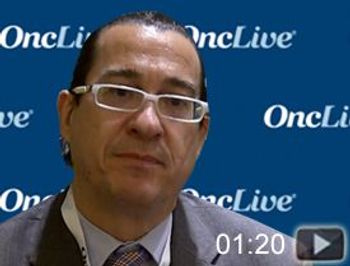
Javier A. Pinilla-Ibarz, MD, PhD, senior member, Moffitt Cancer Center, discusses the FDA approval of moxetumomab pasudotox for the treatment of adult patients with hairy cell leukemia who have received at least 2 prior lines of therapy.

The FDA has approved moxetumomab pasudotox for the treatment of adult patients with relapsed or refractory hairy cell leukemia following at least 2 prior lines of therapy.

Kenneth H. Shain, MD, PhD, discusses the evolution of treatment for patients with newly diagnosed multiple myeloma and how physicians are leveraging data with chimeric antigen receptor T-cell therapy and minimal residual disease negativity to improve outcomes.
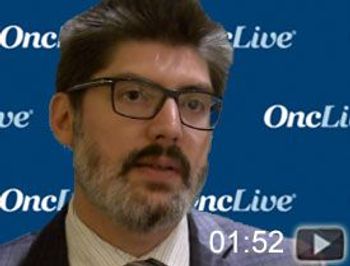
Frederick Locke, MD, a medical oncologist in the Department of Blood and Marrow Transplant, Moffitt Cancer Center, and an assistant professor of oncology at the University of South Florida, discusses unanswered questions with chimeric antigen receptor T-cell therapy.
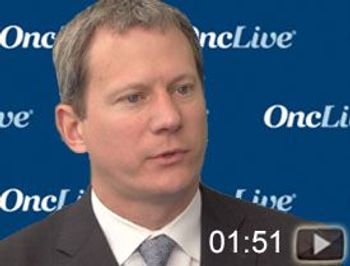
Eric M. Ostertag, MD, PhD, chief executive officer, Poseida Therapeutics, Inc., discusses an emerging CAR T stem cell memory product for patients with relapsed/refractory multiple myeloma.

Every week, The American Journal of Managed Care® recaps the top managed care news of the week, and you can now listen to it on our podcast, Managed Care Cast.

This week, the top managed care news included a panel mostly endorsed the use of patient-reported outcomes for coverage of chimeric antigen receptor T-cell therapy; the US Preventive Services Task Force released new recommendations for cervical cancer screening; research found accountable care organization penetration may be changing how physicians work.

A blood test that tracks the rise and fall of circulating tumor DNA (ctDNA) levels can predict how patients with diffuse large B-cell lymphoma will respond to therapy within days of starting treatment.